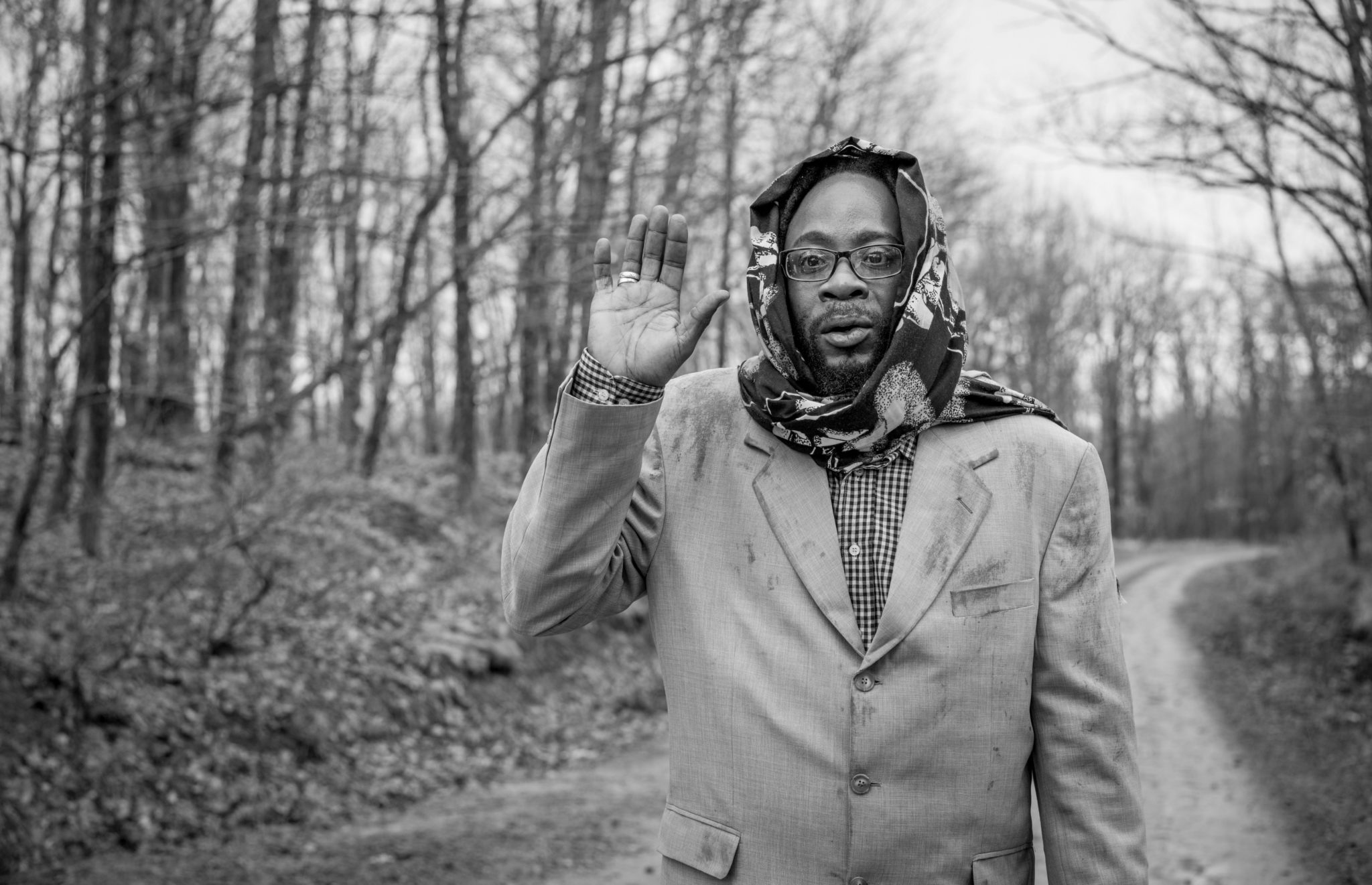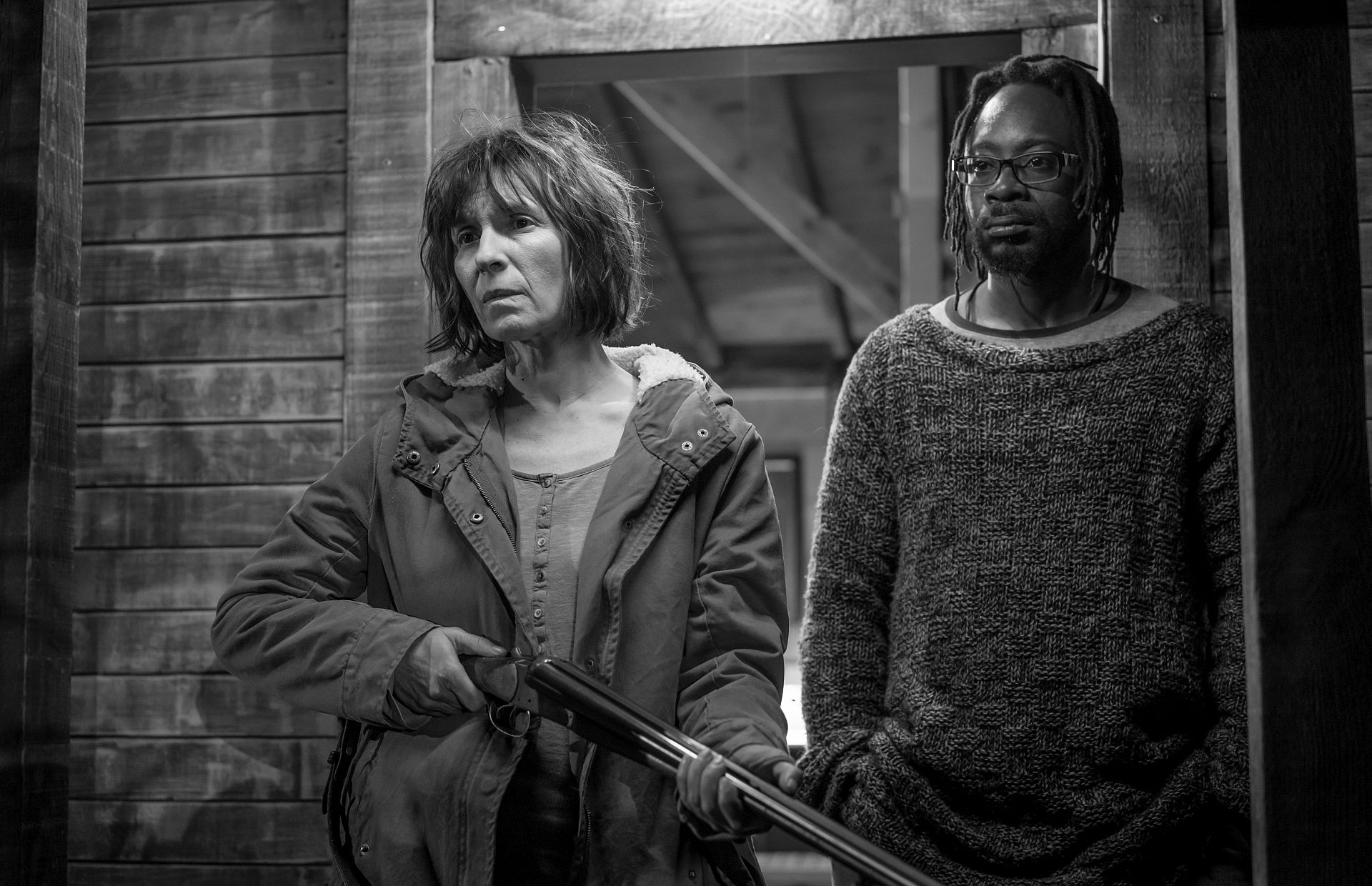?We are hospitable people?but Bulgaria belongs to Bulgarians.?
What does it mean to welcome the stranger? It seems to be a lost value in the world today. Ivaylo Hristov?s Fear shows that xenophobia is present in Bulgaria, but we know this is not something that is limited to that nation. Fear was Bulgaria?s official submission for Best Foreign Feature consideration.
Svetla has been widowed and alone for several years. She lives in a village near the Turkish border. She has just lost her job as a teacher because her town doesn?t have enough children. One day, while hunting rabbits, she comes across Bamba, a refugee from Mali, who is trying to get to Germany. When she takes him to the police, they don?t care because they have their hands full with a recent group of Afghan refugees. Svelta brings him home until she can find something to do with him.

These two people don?t even have a common language. (Bamba only speaks English.) This creates some interesting, disjointed conversations as each responds to what they think the other is saying. Bamba, who is also alone, having lost his family, finds sanctuary in Svetla?s house. Svetla finds a companion that fills the emptiness in her life.
The community is less accepting of Bamba?s presence. They write graffiti on Svetla?s house. The sign a petition. They break windows. They kill her dog. No one wants this person who is so different around. But for Svetla, this is a time to take a stand. All her life, she has feared being different or not accepted. She will not stand it any longer.
The film?s title can be read many ways. It is certainly about the fear of the stranger. But it also can be seen in the fear the community tries to create in Bamba and Svetla. It also comes into play when Svetla talks about the fear she has lived with.

In a world that is filled with refugees, the idea of welcoming the stranger is not a theoretical issue. Many countries in Europe are struggling to come to terms with those coming from Africa and from the Middle East. And sadly, in the last week, a great migration from Ukraine. In the US, we struggle with dealing with those coming from Latin America. The influx of people can create difficulties for the countries involved. How do we provide for those in need? How will they affect our economy? What will they take from us? What will they give to us?
There is an interesting comparison in the film between Bamba?s situation and that of the group of Afghans captured by the police. Prior to arresting them, the police had a TV crew looking for something newsworthy in it. The police chief downplayed the danger from the refugees. They didn?t bring drugs. They weren?t violent. They weren?t sick. The main concern after the capture was finding housing for them until they could be taken elsewhere. But the locals just see them as ?gypsies?.
We don?t get to know any of this group. No one seems to care about them except in the abstract. But we do get to know Bamba. We know what he could contribute to the community if allowed. But the others only see as far as his skin and language. And the skin seems to be a barrier that the others are not willing to overlook.

In Matthew?s Gospel, Jesus speaks of the Judgment as dividing sheep and goats, one of the criteria is ?I was a stranger and you welcomed me? (or not). In this he is reinforcing the teaching of the Torah: ?You shall also love the stranger? [as God does]. This is not just an issue of national policy or communities. It is about how we each react to the strangers in our midst. Xenophobia can involve race, religion, sexual orientation, language, disabilities, and many other ways that people are different from us. Will we fear those differences, or welcome the strangers we meet each day?
Fear is available on Virtual Cinema and VOD.
Photos courtesy of Film Movement.




